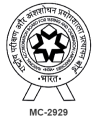Holy Family Hospital is committed to conducting high-quality, and scientifically sound, ethical research. To ensure that all research activities adhere to national regulations, international standards, and institutional policies, we have established two key committees:
- the Scientific Research Committee (SRC) and
- the Institutional Ethics Committee (IEC).
These committees play a critical role in maintaining the integrity, quality, and safety of all research conducted within the institution.
The Scientific Research Committee reviews the scientific merit and feasibility of all research proposals. It ensures that studies are well-designed, methodologically sound, and contribute meaningfully to medical science.
Key Roles:
- Review study design, objectives, methodology, and sample size.
- Evaluate investigator qualifications and resource availability.
- Suggest improvements for scientific rigor.
- Guide student and faculty research development.
Members Include: Experienced clinicians, biostatisticians, public health experts, and research professionals.
The Institutional Ethics Committee safeguards the rights, safety, and well-being of all research participants. Holy Family Hospital’s Institutional Ethics Committee (IEC) is registered under the Department of Health Research (DHR), Ministry of Health & Family Welfare, Government of India as per the regulatory mandate to oversee biomedical and health research involving human participants as per the National Ethical Guidelines for Biomedical and Health Research Involving Human Participants issued by ICMR, and the subsequent New Drugs and Clinical Trial Rules (NDCTR 2019).
Key Roles:
- Review medical, financial, social and ethical aspects of research proposals.
- Review the legal aspects of research proposals.
- Evaluate informed consent processes and transparency regarding patient information and consent.
- Evaluate patient confidentiality processes in the research projects.
- Monitor ongoing studies for ethical compliance.
- Review adverse events, protocol deviations, and amendments.
As per ICMR (Indian Council of Medical Research) guidelines and Schedule Y (Drugs and Cosmetics Rules), the composition of an Institutional Ethics Committee (IEC) or Ethics Committee (EC) must be multidisciplinary and multi-sectoral to ensure a balanced perspective.
- Chairperson (from outside the institution)
- Member Secretary (from within the institution)
- Basic Medical Scientist(s) (preferably one to two, from various medical specialties)
- Clinician(s) (at least one from any clinical discipline)
- Legal Expert (lawyer or legal professional familiar with medical law)
- Social Scientist / NGO Representative (person with social/ethical experience, especially in vulnerable populations)
- Philosopher / Ethicist / Theologian (for ethical and moral reasoning)
- Lay Person (community member with no affiliation to the institution to represent societal perspective)



